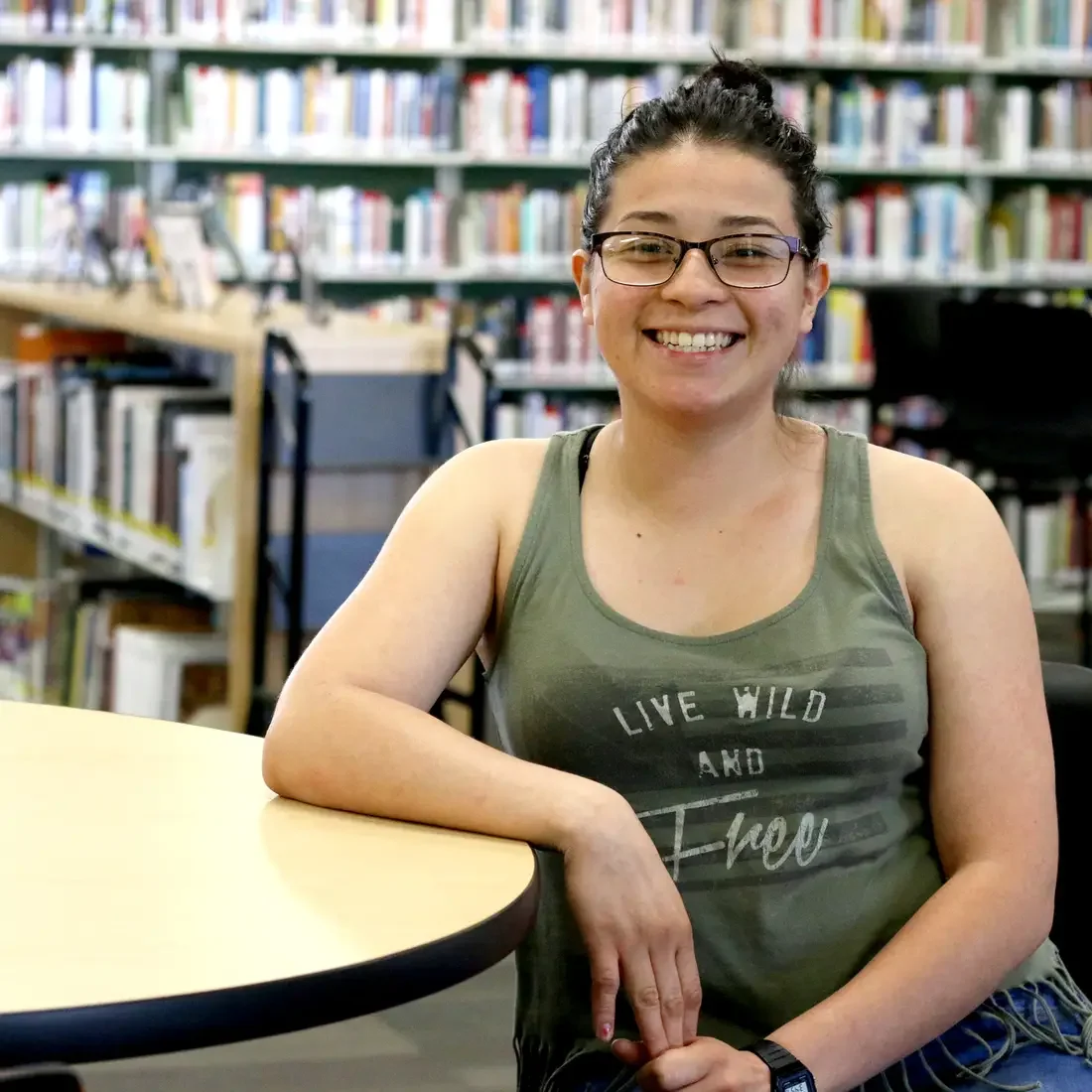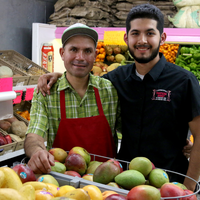Two hours into her shift at a salsa factory in Mexico, Sarahi Cardoza sat watching the empty glass jars rattle their way to her filling station — when the machine malfunctioned and exploded.
“They (co-workers) thought I died since all of the salsa just hit me and it looked like blood to them,” Cardoza said recalling her story, with a steady voice, in a College of Western Idaho (CWI) conference room.
Cardoza’s introduction to CWI began with the CLEP test, a College-Level Examination Program which grants credit-by-examination. By demonstrating mastery of introductory college-level material, college credit can be earned. Cardoza passed the CLEP test and later received her GED from CWI, both major stepping-stones in her academic career.
Cardoza, who is now 22, was born in Ontario, Oregon, but she moved to Mexico with her family at 13, after her father was deported. When she was 17, she moved to Idaho without her family.
Cardoza was a student at Vallivue Academy in Caldwell. Her counselor, Eric Graves, suggested taking the CLEP exam for Spanish. If she passed, Cardoza could receive up to 16 college credits. The exam, paid for by the Idaho State Department of Education Fast Forward program, is a great launching pad for students. At the time, she was unsure about taking the test, but after passing she was inspired to consider college.
“I thought I wasn’t going to be able to go to college, my parents never said we have to go to college,” she said.
The road to CWI has been challenging, but she is thankful for the opportunity. Currently working on general study classes, she hopes to start the Law Enforcement program in January. Cardoza’s long-term goal is to become a detective and she is excited about pursuing a career in law enforcement.
“It’s changed my life completely,” she said while sharing her experiences about CWI.
Cardoza’s story highlights outreach work the CWI Dual Credit department has been doing. The program helps connect high school students with advanced opportunities available through the Idaho State Department of Education.
“There’s a sense of accomplishment when you see that light bulb go on when you see one student develop a recognition for academic success and personal success,” said Director of Dual Credit, Stephen Crumrine.
The Dual Credit program at the College has been riding a wave of success recently as it received accreditation from the National Alliance of Concurrent Enrollment Partnerships (NACEP) on May 1. The program served more than 9,000 enrollments and facilitated a total of 45,000 credits earned. The CWI team works with students in more than 80 high schools across Idaho. As part of a young institution, it was the first time the dual credit program was qualified to apply for NACEP accreditation. Programs must be active for at least four years before applying and 60 percent of first-time applicants do not receive initial accreditation. To accomplish this upon first application is quite impressive and a testament to the quality and high standards CWI’s Dual Credit program strives for.
The CLEP initiative has been a major driving force within CWI’s Dual Credit program, which is one of the largest in the region. The program serves as a bridge to college for many students. Recent CLEP *survey data demonstrates that more than 76 percent of participants have credited the CLEP experience as a foundation for their interest in college.
Recent Vallivue High School graduate Edgar Rosales, 17, can’t wait for the fall when he will drive north along the Payette River to college. He plans on using the 16 credits he earned from the CLEP exam towards a degree at the University of Idaho. His goal is to become a Spanish teacher and return to the Treasure Valley.
Rosales knows about hard work. When he was not at school, Rosales worked as a butcher at his family’s business, Pantera Market, in Caldwell. His parents, immigrants from Mexico, have been incredibly supportive. His father, Emilio, is hopeful for his son’s future.
“I try to help him to keep growing, so his sisters can learn from him and I hope they follow in his footsteps,” he said.
His father said Edgar has always been dedicated, he would ride his bike to and from school. There were times he got a flat tire and walked three miles, carrying his bike, to get home. When the family came to Idaho seven years ago, the family did not even have enough money to buy a gallon of milk.
“I don’t want him to have to work in the store anymore. It’s very hard. He’s Hispanic and I want him to be able to accomplish more — this is so important, sometimes it makes me cry.”
Rosales first learned about the test through TRIO, a program sponsored by the U.S. Department of Education that focuses on low-income and first-generation college students.
In addition to his CLEP credits, he has been taking dual credit math classes. “The classes challenged me a little more and helped me prepare for college,” Edgar said.
The combination of students hungry to learn and programs like CLEP and Dual Credit, prepare young people with not only the tools but the confidence to know they can go to college and excel.
*A CWI survey of CLEP participants taken in 2016

